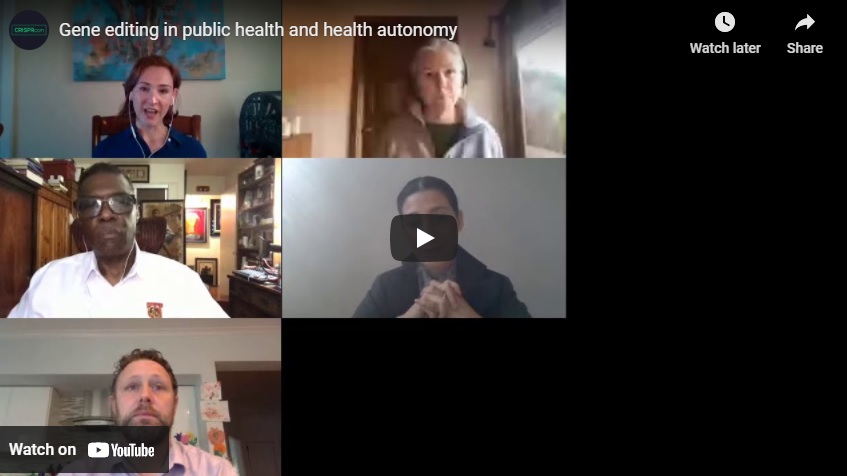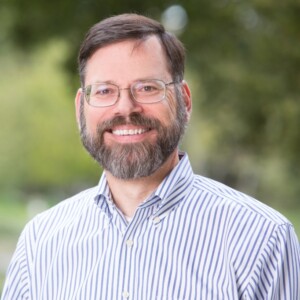CRISPRcon 2020 Revisited: Gene Editing in Public Health and Health Autonomy
In its final week, CRISPRcon 2020 Virtual explored priority setting in gene editing and the factors that shape research and development. The theme featured two discussions that examined what values and criteria are being used to shape research and funding decisions for gene editing in health, agriculture and beyond. The first discussion, held Oct. 27, delved into the complexities and tradeoffs of gene editing-focused health approaches for treatment versus prevention as well as the scale and significance of impact for individuals versus society at large.
“When considering all of these potential features together at the same time, we realize that there’s kind of an overarching question that we’ll be exploring today with our panelists and that is, how can we equitably maximize the benefit of gene editing technologies for everyone across each of these decision points while minimizing negative or unanticipated consequences? So, that means priority in agenda setting is really important and that it must be inclusive and widespread,” said David Sittenfeld, manager of forums and national collaborations at the Museum of Science in Boston, who moderated the session.
“The choice is not precision medicine or chronic disease management. We have to do both. We’re the richest country in the world. We are the country that brings these new technologies to market. And they’re coming. What we really have to be making choices about now is how to make sure that the people who stand to benefit from these technologies can actually access them and at a price that will not bankrupt their families or the system at large,” said Rena Conti, associate research director at Biopharma and Public Policy.
“There’s no consciousness to inform the processes from start to finish that would really be reflective of the needs, interests, and perspectives of those populations that are included. The ones that we are trying to figure out how to bring those voices to the table because it’s been a very monolithic type of mindset that has brought this forth,” said Glenn Ellis, visiting scholar at the National Bioethics Center at Tuskegee University.
“Who should benefit are the vulnerable populations that Rena was just talking about. And the integration of those communities and their voices as Glenn was saying has to happen from the start and we’re already starting from a bad place because we do have systemic racism and we have inequity built into the system,” said Sharon Terry, president and CEO of Genetic Alliance.
“My north star is how do we decrease disparities globally when it comes to precision medicine and new approaches to modernizing health care? One of the key elements to that is inclusion. That starts with consent. What are we doing around consent to make sure there is comprehension that people are truly informed and engaged and are made part of the system,” said Elissa Prichep, project lead precision medicine at the World Economic Forum.







 Login
Login



